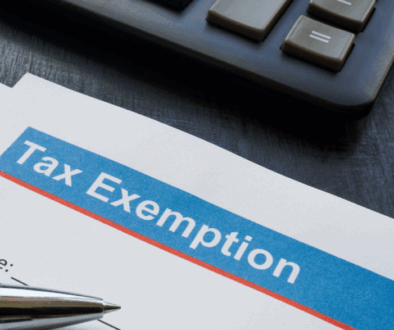How Are Bonuses Taxed?
How are bonuses taxed?
Bonuses are always a welcome boost in pay, but are they taxed differently? The answer is a bit complicated but generally speaking yes, bonuses are handled differently than regular salary.
This is because the IRS classifies bonuses as supplemental wages and holds them to a higher withholding rate, generally 22%. Meaning more of that money with be withheld from your paycheck than you may be used to.
If you’re a little confused, that’s okay, this blog should clear things up.
What is a Bonus?
Before we figure out how bonuses are taxed, we need to define what a bonus is. A bonus is a form of compensation awarded to a worker that is paid out in addition to a worker’s existing salary or wages.
Most often, bonuses are distributed on special occasions, like a holiday, or built into compensation plans, like hitting a quarterly sales goal. Other types of bonuses include annual, merit, referral, sign-on, and retention bonuses.
As mentioned above, the IRS classifies bonuses as “supplemental wages,” along with overtime, vacation pay, severance pay, and back pay.
Simply put, supplemental wages or pay is any compensation you receive other than your regular pay. It’s also subject to its own withholding rules, which we will talk about later.
How are Bonuses Taxed?
In the same way that your employer holds back a portion of your regular paycheck to pay your taxes, they must also deduct money from your bonus check to do the same.
When it comes to bonuses, there are two ways employers are allowed to calculate your tax withholding: the percentage method or the aggregate method.
The Percentage Method
If you receive a bonus separately from your regular paycheck, your employer probably calculates how much tax to withhold from your bonus based on the percentage method.
If your total bonus for the year is less than $1 million, you’ll be taxed at a flat rate of 22%. If your total bonuses are higher than $1 million, the first $1 million gets taxed at 22%, and every dollar over that gets taxed at a higher percentage.
The Aggregate Method
The aggregate method is the second way employers can calculate taxes withheld on a bonus. This is often the method used when your employer lumps your bonus and regular wages into one paycheck.
With the aggregate method, the tax withholding on your bonus is calculated at your regular income tax rate, and the withholding rate is based on your tax bracket.
It’s also important to keep in mind that the aggregate and percentage method calculations apply only to federal income tax. Bonuses are also subject to Social Security and Medicare withholding rates, as well as any state or local income taxes.
Can You Avoid Tax on a Bonus?
You can’t avoid tax on a bonus completely, but there are some things you can do to lower it. You can reduce your tax liability on a bonus by putting it toward deductible expenses or other tax-sheltered uses. Some examples include charitable donations, contributions to a 401(k) or traditional IRA, health savings account contributions, and certain medical expenses.
Summary
Simply put, in most cases, your bonuses are going to be taxed at a flat 22% federal withholding rate. This means that, in the short term, your employer will withhold a portion of your bonus for taxes. In the long term, the bonus will be added to your total income for the year and ultimately taxed as regular income by the IRS.
Hopefully, you found this blog helpful, and if you have any more questions, don’t hesitate to ask.
Don’t miss tax tips delivered to your inbox:




